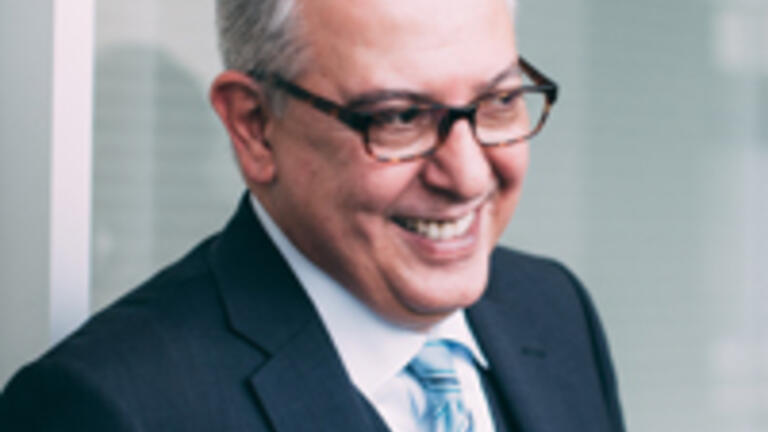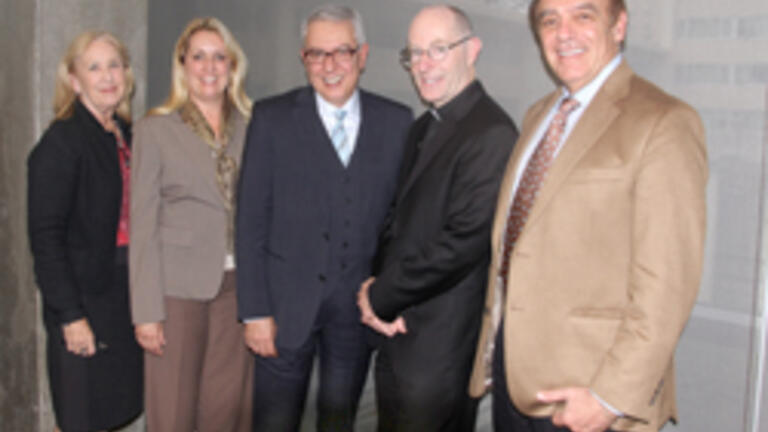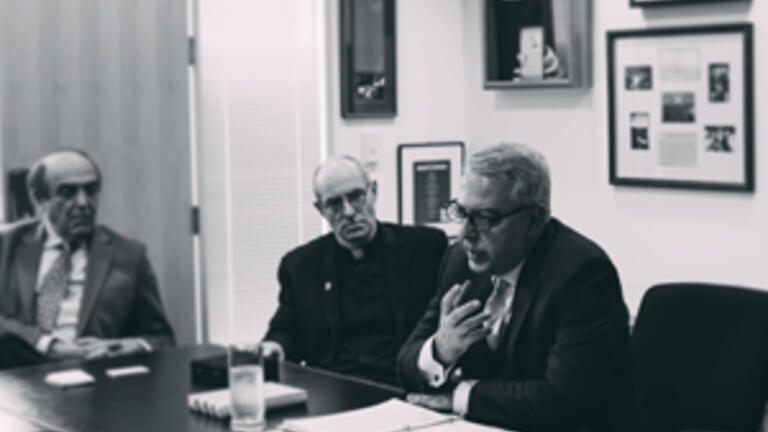
Turkish Ambassador Discusses International Cooperation at USF

The University of San Francisco School of Management welcomed Turkish Ambassador to the U.S., Serdar Kılıç, to campus in December for a discussion on how the United States and Turkey can create a shared vision for cooperation against terrorism, xenophobia, and in support of education.
“Turkey is rated number one in Europe for continuing education,” he told the attendees, which included University President Paul J. Fitzgerald, S.J. and Provost Jennifer Turpin. “It is unique to Turkey, as a Muslim country, to have been able to establish and maintain democratic standards like we have. There is, however, always room for improvement. The sky's the limit.”
Kılıç spoke to the role of education and the impact it has on the growth of the country.“It is absolutely necessary for Turkish students to study in the US and for the reverse to happen. If you understand the culture of a region, then you will see why things are the way they are and can offer solutions to further develop,” he said. He cited Turkey’s young economic system as an opportunity to work on international cooperation and a united front against the extremism the nation is fighting. Kılıç said that the opportunity for Turkish students to study in the U.S. results in the growth of the country. “They can go abroad and bring the skills they learn back to Turkey,” he said. “If the United Nations could see Turkey as a gateway for free trade, it would foster our far-reaching decision to invest in our growing labor force.”

The Ambassador cited the strength of the region and the diversification of its resources as a contributing factor to “reconciling Islam in modernity.” He said that one of the biggest issues facing Turkey today is the influx of refugees from ISIS-run areas of Syria. “We are reaching the limits of our resources to help (them),” he said. “We are doing the best we can to further refugee education while they are in Turkey, but the cooperation from the international community is imperative at this point.”
According to Kılıç, there are 1.6 million Syrian refugees in Turkey and the country is attempting to offer them free education and health services. “It’s the nature of our geography,” he said. “We can not humanely close our borders to the people because they will be killed. We could lose an entire generation of their population, but there is a cost to the Turkish people that becomes more and more difficult to support.”
Nicholas Imparato, Chair of the Department of Marketing at the USF School of Management, who organized the discussion, said that bringing the Ambassador to the university was a key step to greater international cooperation. “The common interests expressed for human rights for people of all backgrounds and religions by Fr. Paul Fitzgerald and the Ambassador point out that people of good will can not just sit on the sidelines and wring their hands, but have to act.”

Compromise, understanding, and an adherence to common values for human rights was emphasized throughout the conversation. Kılıç spoke repeatedly about the effect of terror refugees on the neighboring countries, and how the international community should be working with his country to combat terrorism in the region. “We are allies and have a time-tested relationship against terrorism and extremism. This is very different from what the media shows,” he said. “What we need is an inclusive government front because if we don’t contain (ISIS) the problems will continue to spread.”
Imparato echoed this sentiment, saying that the relationship between the U.S. and Turkey has critical value. “An ostrich approach to foreign affairs rarely works,” he said. “Sticking your head in the sand and pretending problems will just go away is a big risk strategy that will come back to bite you.”